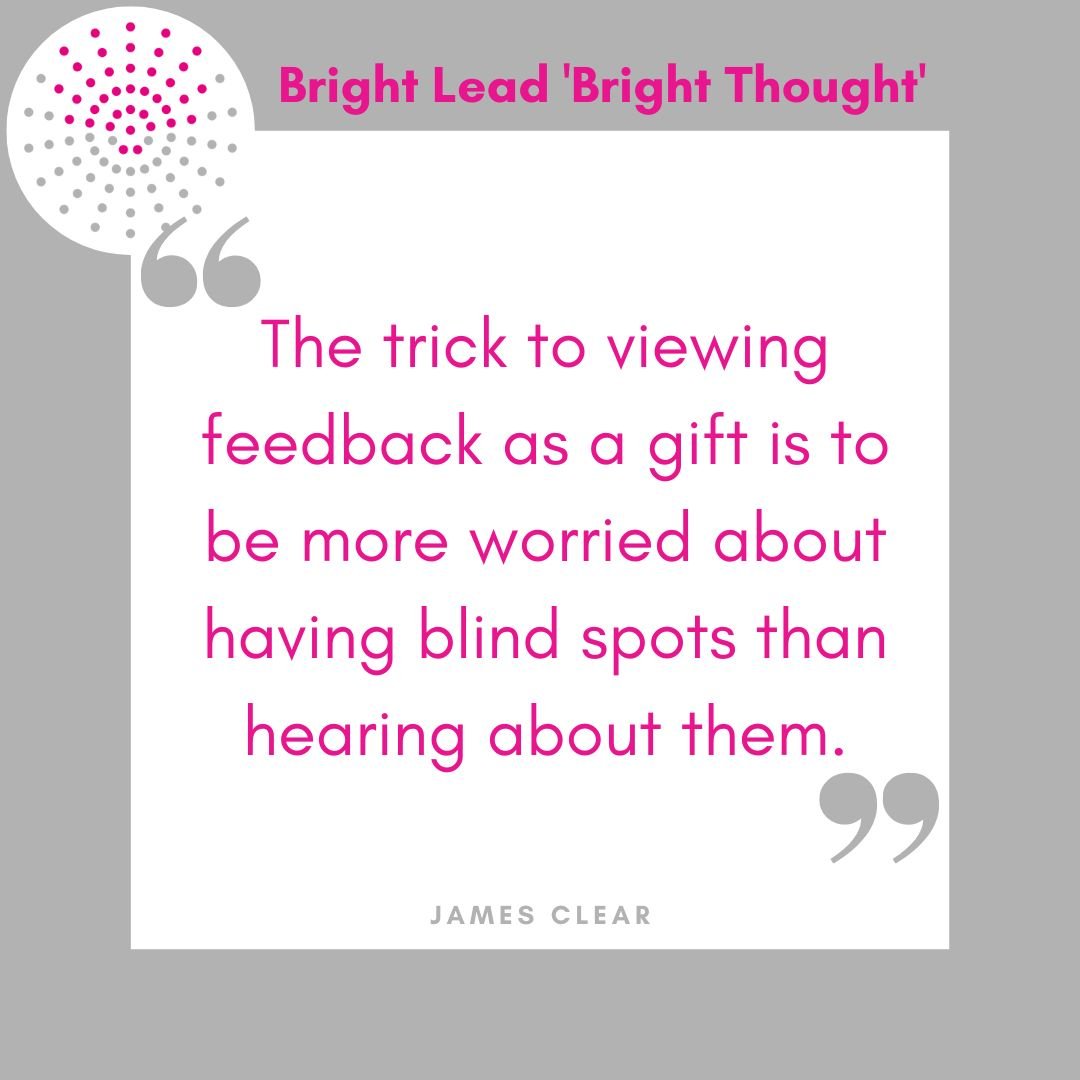The Gift of Feedback…
“The trick to viewing feedback as a gift is to be more worried about having blind spots than hearing about them”.
James Clear’s Atomic Habits is a favourite book of mine, and this quote from his regular 3-2-1 weekly newsletter resonated. It’s a lesson really worth holding on to, a powerful statement to encourage us to be brave and receive feedback with grace and humility. If we try to look at feedback in this way, even if the other person presents feedback as criticism, and try to find the constructive element, then we can use it as a moment of real growth. Some people are better than others at giving feedback, and if we think of feedback as a gift, some wrap gifts beautifully, and others don’t. If we can see the delivery of feedback in that way rather than attributing it to fundamentally flawed character traits, which mean we discard it, we will benefit! This means seeing past the ‘wrapping’ to the gift of opening our eyes to our potential blind spots.
In Leadership, it’s important that we welcome constructive feedback from our teams and our peers, even if we don’t fully agree with their thoughts, as it’s always useful to use their views as an opportunity for self-reflection. That’s the problem with blind spots, we don’t know they are there until someone points them out, and therein lies the gift aspect of feedback, we can use that gift as an opportunity to learn and improve. Even if we think we already cover the aspect they raise, maybe our communication or presentation of that aspect could be altered so that it becomes clearer to others? Positively responding to feedback doesn’t mean radically changing everything to please every person, it’s simply a case of introducing objective self-reflection. This mindset takes a certain amount of courage, the courage to recognise areas for improvement, and implement change in ourselves, sometimes in areas that we didn’t know we needed to change.
This was very true for Gareth Southgate who recently opened up about the impact on him of the criticism he received around the World Cup. He said it would have been very easy to have been caught up in the emotion of the situation and to have made a snap decision to leave, but his period of self-reflection upon what had been said, and crucially of the impact his presence or otherwise might have upon the team performance was necessary.
As well as learning how to receive feedback, it’s important to learn how to give feedback too, and I work on both aspects with my leadership programmes and group coaching cohorts - the give and take, the positive acceptance of constructive feedback, and how to give feedback with constructive, positive intent.
As leaders it’s important we can show our positive acceptance of feedback, and foster an environment of psychological safety where it is assumed feedback is always given with constructive intent and an over-riding desire for the team to succeed together.
It’s too easy to avoid giving feedback, either putting it off, perhaps as ‘too minor’, or thinking ‘I’ll wait until there’s something more important’. Fundamentally this is about us not wanting to feel discomfort. This can lead to resentment on both sides, that things haven’t changed (why would they if the other person is oblivious to them?), or that there is a sense of dissatisfaction, but they can’t put their finger on what it is. Our energy is caught even if we try and disguise it. If we feel that someone on our team would benefit from some feedback, we must give it constructively as the issue arises. Otherwise, if we wait, it may come out as frustration and end up feeling like an ambush attack when we do raise it, letting loose with what seems like a long list of criticisms. If we deal with issues as and when they arise, with specific actions for change, it gives context to the feedback given, and nips the issue in the bud before we all get increasingly irritated.
Conversations involving feedback in either direction can feel difficult, and we often want to shy away, putting them off. But if have courage, and can step forward with a positive mindset, we will realise that feedback is simply the gift of insight after all.
Reflection questions:
Honestly, how do I usually respond to feedback?
How can I make it feel even safer for those around me to give feedback?
Who do I know that gives great feedback and what can I start emulating about their style?
What one thing would help me give better feedback?

